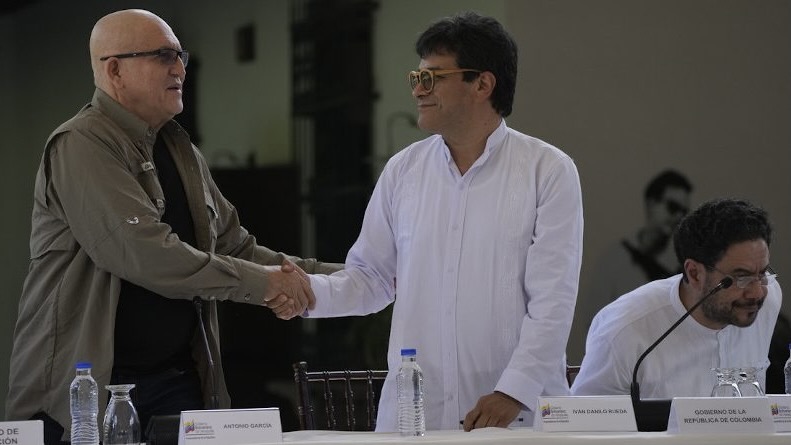Talks between the Colombian government and the leftist guerrilla group, National Liberation Army (ELN), are set to begin in Caracas, Venezuela, on Monday, November 21.
Negotiations with the ELN have been a key part of the agenda of President Gustavo Petro who took office in August. The talks were halted in January 2019 by his right-wing predecessor Ivan Duque.
On Thursday, the Colombian Attorney General’s Office reported that it had suspended the arrest warrants against 17 commanders of the ELN, whom President Petro has recognized as authorized representatives of the guerilla group for the talks.
The statement added that this resolution would be communicated to the national and international judicial police authorities, including INTERPOL, for “immediate and strict compliance.”
Meanwhile, after attending an event commemorating the 103rd anniversary of the Colombian Air Forces, President Petro said that the list of government negotiators had already been finalized. He said that writer Otty Patiño, a former member of the demobilized M-19 guerrilla group and member of the 1991 National Constituent Assembly, would be the head of the government delegation.
The president said that Patiño would be accompanied by senators Iván Cepeda and María José Pizarro, peasant leader Alberto Castilla, anthropologist Horacio Guerrero, and former legislator Olga Lucía Silva, among others. Later on Thursday, President Petro invited the president of the Colombian Federation of Livestock Farmers (FEDEGÁN), José Félix Lafaurie, to be part of the team. Lafaurie accepted the proposal, saying that peace must begin with the recovery of the countryside.
The ELN and the peace negotiations
The ELN is Colombia’s largest active guerilla group. Following the signing of peace agreements between the government of then President Juan Manuel Santos and the now demobilized Revolutionary Armed Forces of Colombia–People’s Army (FARC-EP) guerilla group in November 2016 in Havana, Cuba, the Santos government began talks with the ELN in 2017.
A month after taking office in August 2018, his successor Duque suspended the peace process. Duque completely halted the process in January 2019 after a car bomb attack on the Police Cadet School in Bogota that left 22 dead and 68 wounded.
On August 8, the day following his inauguration, Petro announced the resumption of negotiations with the ELN. On October 4, the Petro administration and the ELN commanders signed an agreement to reinstate the negotiations. They also decided to resume agreements and advances achieved before the suspension of talks.
In September, Petro had asked his Venezuelan counterpart Nicolás Maduro to be a guarantor in the peace process with the ELN, and the latter accepted.
On November 3, the Colombian Congress approved by a large majority the Total Peace Law, which sets a legal framework and provides tools to approach armed organizations operating in the country and launch peace talks with them, in addition to suspending arrest warrants and extradition orders against groups that enter into negotiations.





